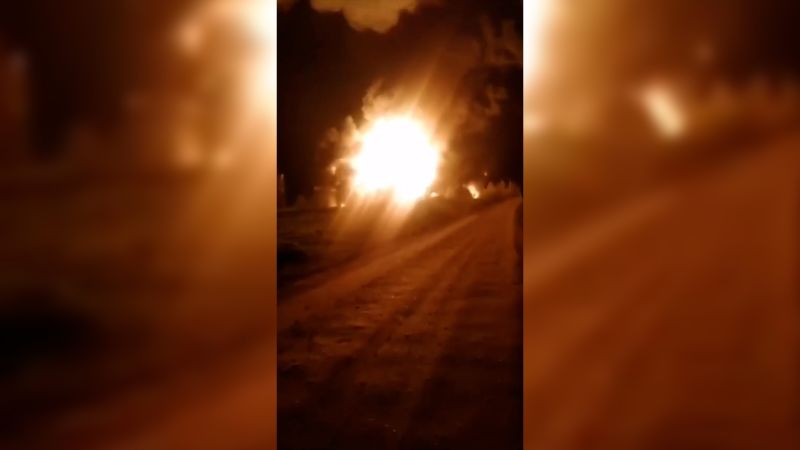As the conflict between Ukraine and Russia spirals towards technological warfare, Ukraine’s special services claim to have launched precision drone attacks on Russian energy facilities.
According to a source within the Ukraine intelligence community, these drone strikes serve multiple purposes in Ukraine’s conflict with Russia. Primarily, they aim to destabilize Russia’s energy infrastructure, which plays a crucial role in fueling its economy and military operations. Russia is one of the world’s largest oil and gas producers, supplying much of Europe’s energy needs. Therefore, an assault on its energy infrastructure can have far-reaching impacts, both domestically and internationally.
The drone technology used in these operations is reportedly sophisticated and capable of carrying out precision strikes. Although the exact type of drones utilized remains classified, it’s suggested that they’re likely small, nimble, and virtually undetectable. These features enable the drones to penetrate Russian air defenses, which are reputedly sturdy and well-organized, making the achievement all the more significant.
It’s important to note that this represents a shift in Ukraine’s military strategy. While ground confrontations and traditional warfare have dominated the Ukraine-Russia conflict for years, these drone attacks indicate an application of asymmetric warfare tactics. This involves leveraging technology to counterbalance Russia’s military superiority and conventional strength, known for its well-equipped land forces and powerful air defenses.
According to our special services source, the drone operations are primarily aimed at oil refineries, gas pipelines, and power plants. By taking the fight directly to Russia’s energy sector, Ukraine intends to create substantial disruptions to Russia’s energy supply. The consequential economic destabilizing effects could potentially exert pressure on Moscow, persuading it to reconsider its stance towards the conflict.
The repercussions of these drone attacks are felt far beyond the Russian energy sector. Europe and indeed, several parts of the world are heavily dependent on Russian oil and gas. Hence, any potential disruption to Russia’s energy infrastructure may have global implications, potentially causing energy prices to surge and affecting several industries.
The strategy carries risks too. Russia’s advanced anti-drone technology and its formidable air defense systems have long been a deterrent to such strategies. Moreover, Russia could retaliate harshly through various means, escalating tensions in the region.
In conclusion, Ukraine’s alleged drone attacks on Russian energy infrastructure show an escalation in the conflict between the two countries. It marks a shift in Ukraine’s military strategy, leaning more towards unconventional or asymmetric warfare. The ultimate impact of these attacks will depend on multiple factors, including the extent of damage inflicted, Russia’s capacity to recover, and the international community’s reaction. As events unfold in this strained geopolitical landscape, the world watches on anxiously.




